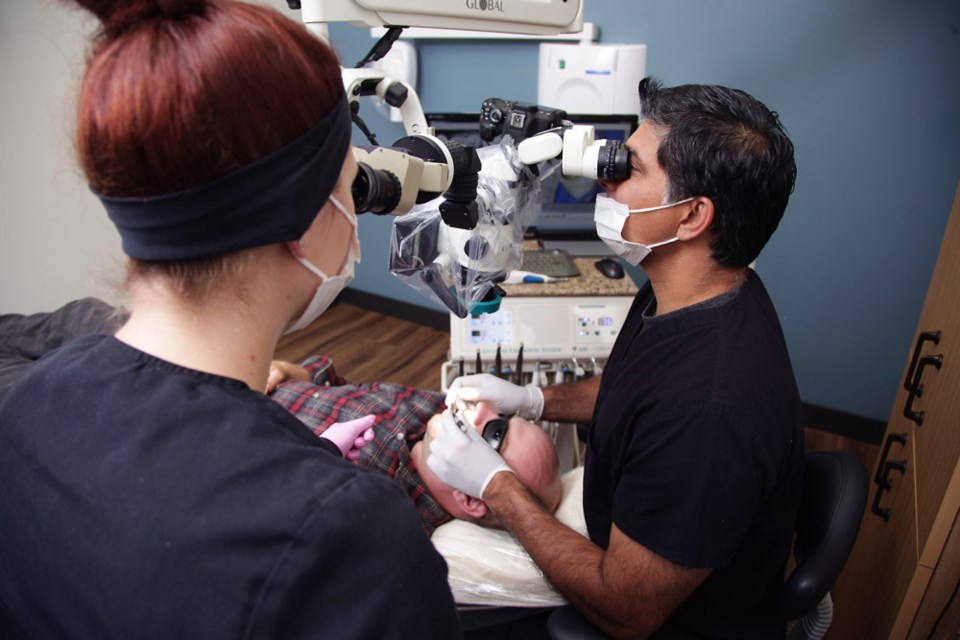Dr. Mark Parhar of Tri-City Endodontics discovered his interest in root canals while working in general practice after completing his dentistry degree at UBC.
"I always had endodontics at the back of my mind. It was actually my favourite part of dentistry," he explains. "Early in your dentistry career you tend to find a specialty area that piques your interest. For me, that was endodontics."
Endodontists perform root canals and have completed a three-year specialist program in addition to a dentistry degree.
"It's a complicated procedure," says Dr. Parhar, "and it requires a high level of knowledge and expertise. In addition to taking care of the teeth, we also need to take care of the patient. When patients come in for a root canal, they are often in pain and nervous about the treatment."
While he understands that nervousness, Dr. Parhar is quick to reassure the patient that root canal therapy is not as painful as they may think.
"I make sure patients are comfortable," he says, "not only during the treatment, but also by making sure they have the right medication after the procedure to minimize any discomfort. I believe in being proactive from start to finish."
When a tooth gets infected, sometimes the only way to save it is with a root canal procedure. While it's always the patient's choice to have a tooth extracted, Dr. Parhar believes that keeping your own teeth for as long as possible is the better option.
"Often patients believe that if they remove the teeth, they remove the problem. But dentures don't always fit well and implants can bring their own problems. Your own teeth will function better, allow you to chew better and are always a better option than anything artificial."
In endodontics, being the patient is usually the easy part. For the dentist, root canals present various challenges due to the nature of teeth.
"Teeth are actually very complex," says Dr. Parhar. "Teeth can have long roots, skinny roots, some are curved like a candy cane, and they're never in a straight line. Often there is more than one root; there can be as many as six in one tooth. And obviously, the teeth in the front are easier to treat than those in the back, which are generally harder to see and reach."
Dr. Parhar encourages people who may think they need a root canal to contact him for a consultation.
"I can be a valuable resource," he says. "I can answer questions about the procedure and make sure you're aware of all the options available to you to treat your tooth."
For more information about Tri-City Endodontics or to make an appointment, call 604.492.3034, check out the website, email or visit the office at 2726 St. John Street, Port Moody.



